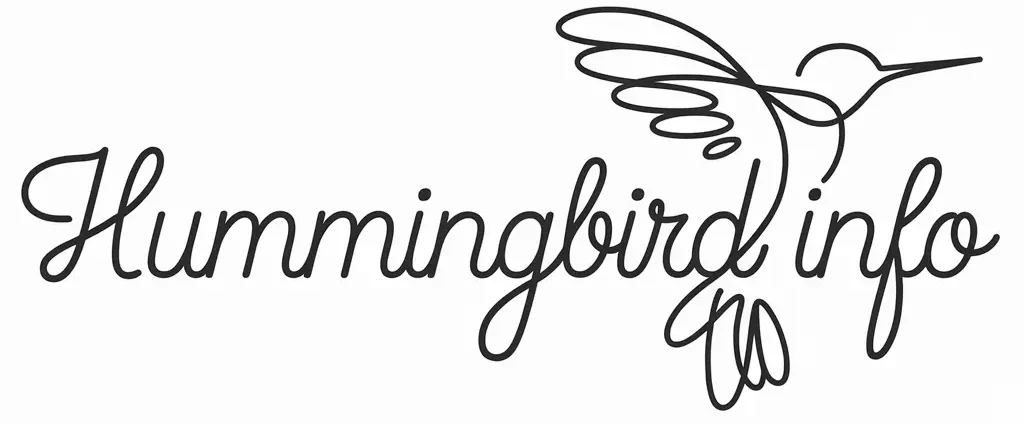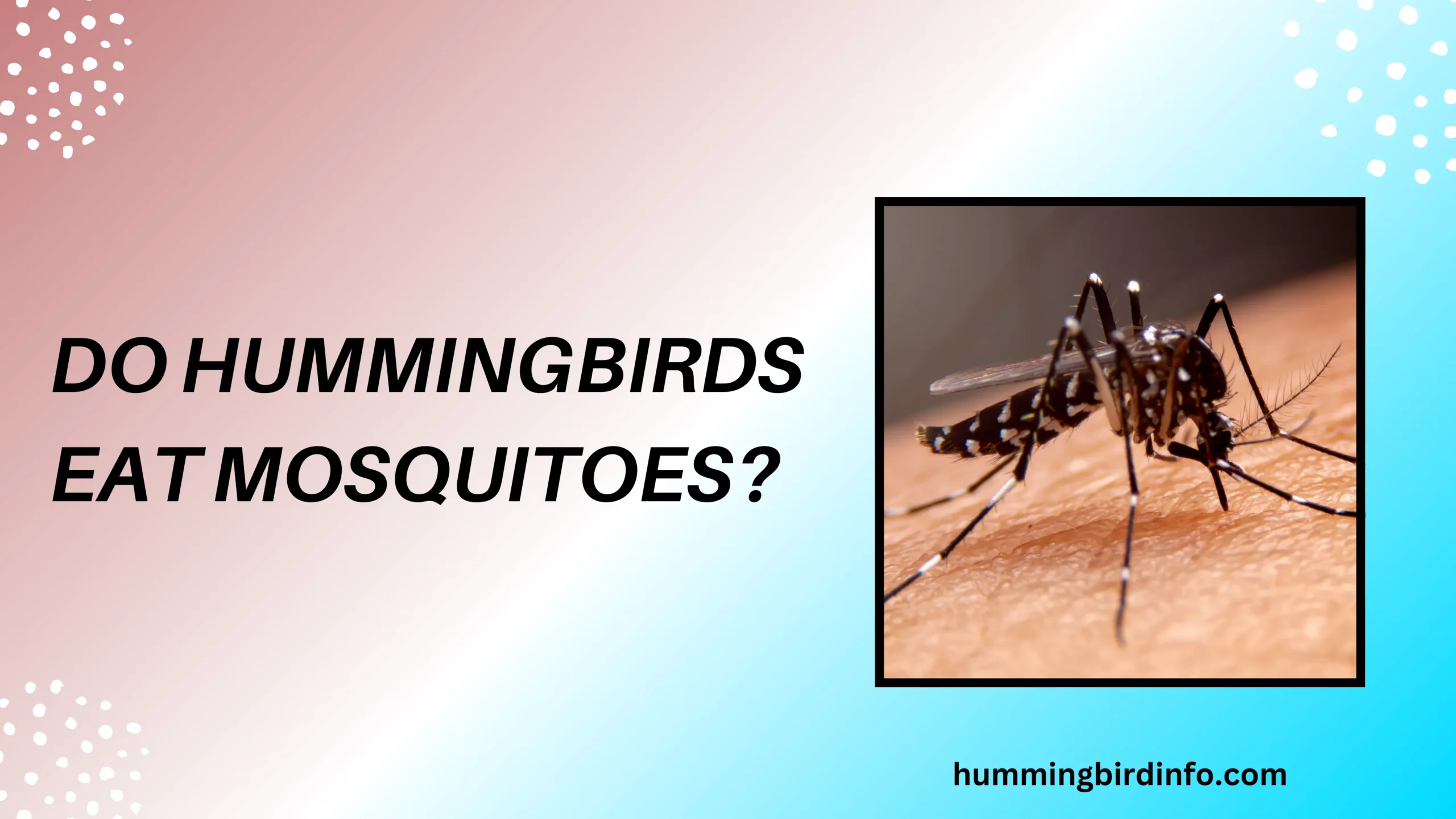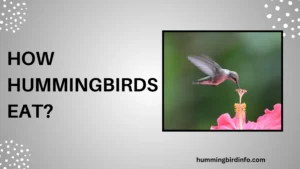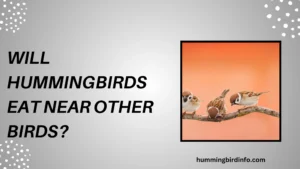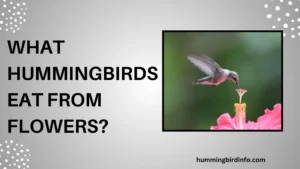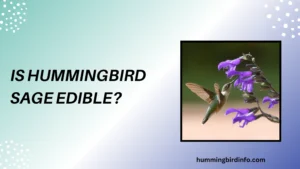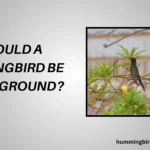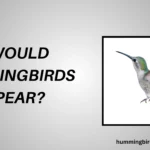Hummingbirds have long captured our imagination with their shimmering feathers, lightning-fast wings, and graceful hovering. These tiny, energetic birds are more than just a treat for the eyes—they’re also a source of fascination for gardeners and nature lovers alike.
Many people hang feeders or plant flowers to welcome these magical visitors each spring and summer.
At the same time, mosquitoes have earned a reputation for being one of the most annoying and dangerous pests. Their bites are irritating, and they can carry diseases, making mosquito control a major concern in many backyards.
So naturally, many wonder: Could hummingbirds help control mosquito populations?
This question isn’t just curious—it’s relevant. If hummingbirds eat mosquitoes, they could offer a natural, beautiful solution to an everyday problem. But is it true?
This article dives deep into what hummingbirds really eat, their relationship with mosquitoes, and how you can make your yard a place they’ll love—while also reducing those pesky insects.
Contents
- 1 The Hummingbird Diet – Beyond Nectar
- 2 Do Hummingbirds Eat Mosquitoes? The Details
- 3 The Nutritional Value of Insects for Hummingbirds
- 4 Attracting Hummingbirds to Your Yard
- 5 Hummingbirds and Mosquito Control – How Much Do They Help?
- 6 Other Natural Predators of Mosquitoes
- 7 Conclusion
- 8 FAQs
- 9 1. Do hummingbirds actively hunt mosquitoes?
- 10 2. How many mosquitoes can a hummingbird eat in a day?
- 11 3. Are mosquitoes a major part of a hummingbird’s diet?
- 12 4. Can hummingbirds eat mosquito larvae?
- 13 5. Do hummingbirds help reduce mosquito populations?
- 14 6. What can I plant to attract hummingbirds?
The Hummingbird Diet – Beyond Nectar
While we often think of hummingbirds sipping nectar all day, that’s only half the story.
Nectar provides the sugary fuel they need to power their high-speed lifestyle, but it lacks essential nutrients like protein.
To survive and thrive, hummingbirds also eat insects—especially for muscle growth, feather development, and raising their young.
Their insect menu includes mosquitoes, gnats, fruit flies, aphids, and even tiny spiders caught in webs or plucked off leaves.
They catch prey in flight, darting through the air like tiny jets, or by gleaning bugs from flowers, shrubs, and bark.
Female hummingbirds especially rely on insects to feed their chicks, making bugs a critical part of their nesting success.
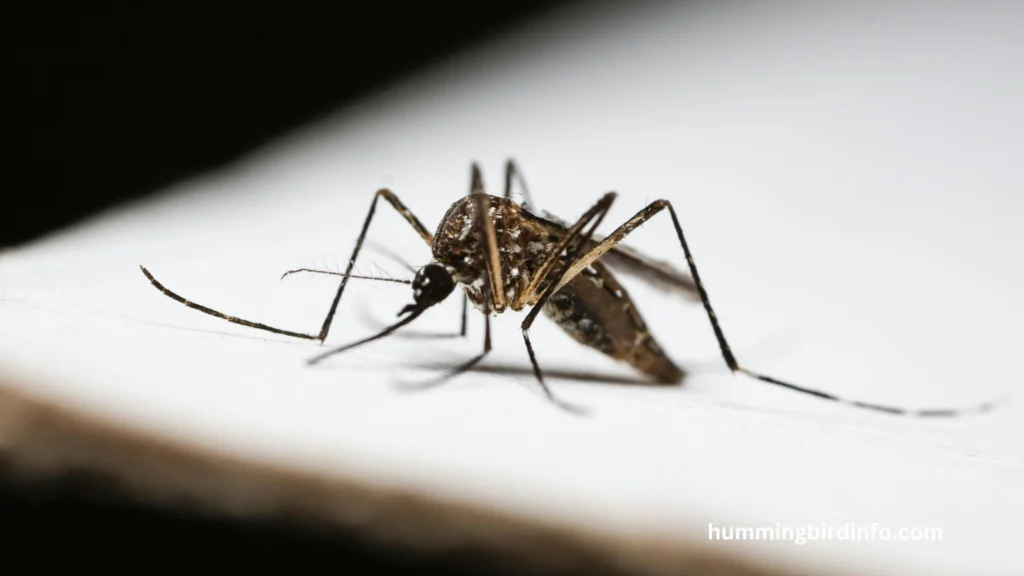
Do Hummingbirds Eat Mosquitoes? The Details
Yes—hummingbirds do eat mosquitoes, but they are just one part of a larger insect diet.
Mosquitoes are the perfect size for hummingbirds to snatch midair, and they offer valuable nutrition, including proteins and fats.
While hummingbirds eat mosquitoes opportunistically, they don’t actively hunt them like bats or dragonflies.
Observations and scientific studies—including stomach content analysis—have confirmed mosquito consumption.
They mostly eat adult mosquitoes, especially when flying or resting on vegetation, not larvae in standing water.
Even though mosquitoes are part of their diet, they’re not eaten in huge numbers, so their impact on mosquito populations is limited.
The Nutritional Value of Insects for Hummingbirds
Insects offer vital nutrients that nectar cannot provide, especially for young and growing birds.
They are rich in amino acids, the building blocks of protein, which support muscle development and feather strength.
Insects also contain fats, B vitamins, iron, and calcium—essential for egg-laying females and nestlings.
Nectar is high in sugar but lacks these nutrients, which is why a balanced diet is so important.
Without enough insects, hummingbirds can suffer from malnutrition, poor immune health, and developmental issues.
That’s why attracting insects to your garden—especially harmless ones—helps both hummingbirds and local biodiversity.
Attracting Hummingbirds to Your Yard
To attract hummingbirds, focus on building a vibrant, insect-friendly ecosystem in your backyard.
Plant native Virginia flowers like Trumpet Vine, Bee Balm, Salvia, Cardinal Flower, and Honeysuckle for natural nectar.
Add hummingbird feeders using the correct sugar-water ratio (4:1), and clean them every few days to prevent mold and fermentation.
Place feeders in shaded, quiet spots, near trees or shrubs for shelter and safety from predators.
Install a birdbath or fountain for drinking and bathing—moving water is especially attractive to hummingbirds.
Avoid using chemical pesticides, which kill off the very insects hummingbirds eat and can also poison the birds directly.
Hummingbirds and Mosquito Control – How Much Do They Help?
Although hummingbirds eat mosquitoes, they’re not your frontline defense against a mosquito outbreak.
A single hummingbird may eat dozens of mosquitoes daily, but they also consume a wide variety of other insects.
Their mosquito consumption is incidental—they eat what’s available and convenient during their foraging.
Their impact on overall mosquito populations is limited, especially compared to larger-scale predators.
Still, their presence can help reduce mosquito numbers locally, especially in small backyard environments.
Think of hummingbirds as part of a bigger pest-control team, not the sole solution to mosquito problems.
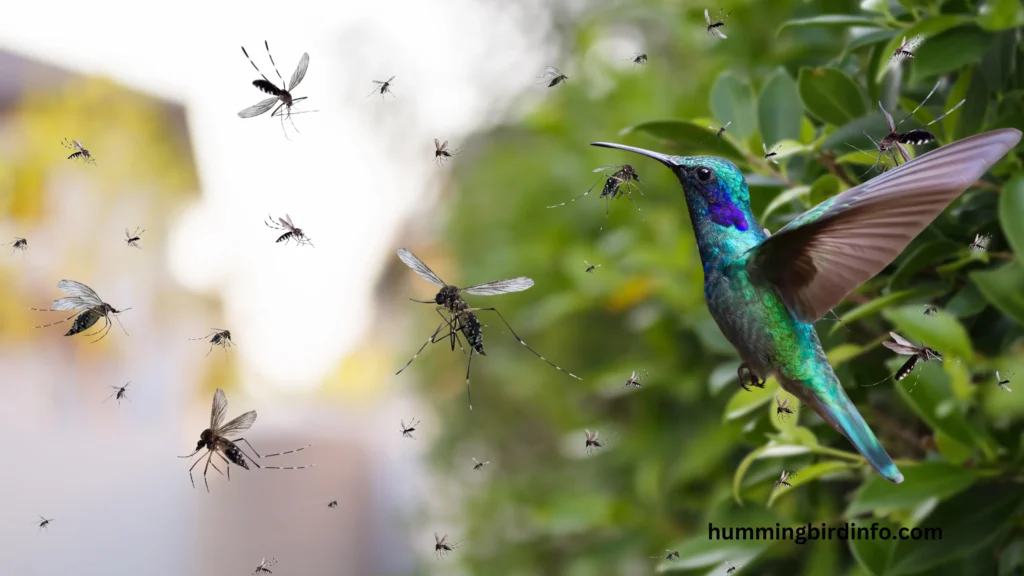
Other Natural Predators of Mosquitoes
Hummingbirds aren’t alone—many animals play a key role in keeping mosquitoes in check.
Bats are expert nighttime mosquito hunters, consuming hundreds to thousands in a single night.
Dragonflies, known as “mosquito hawks,” devour both larvae and adult mosquitoes with incredible accuracy.
Fish, like goldfish and guppies, eat mosquito larvae in ponds and standing water bodies.
Some birds, like purple martins and swallows, also help control flying insects, including mosquitoes.
A diverse garden full of insectivores and pollinators is the best way to keep mosquito numbers under control.
Conclusion
Hummingbirds do, in fact, eat mosquitoes—adding a delightful surprise to their already impressive list of traits.
Their high-protein insect diet, including mosquitoes, is crucial for their health, growth, and ability to raise young.
That said, they are not a mosquito control strategy on their own, but part of a broader ecosystem solution.
You can help by making your garden a safe haven with native flowers, feeders, fresh water, and zero pesticides.
By doing this, you’ll attract not just hummingbirds, but also a variety of natural mosquito predators.
These small changes create a more balanced backyard where nature can do what it does best—thrive in harmony.
FAQs
1. Do hummingbirds actively hunt mosquitoes?
Hummingbirds eat mosquitoes opportunistically, usually catching them midair or off foliage—not by actively hunting them like bats.
2. How many mosquitoes can a hummingbird eat in a day?
An individual hummingbird may eat dozens of mosquitoes daily, but they also consume many other insects.
3. Are mosquitoes a major part of a hummingbird’s diet?
No, mosquitoes are just one part of a varied insect diet that includes gnats, aphids, and fruit flies.
4. Can hummingbirds eat mosquito larvae?
It’s unlikely. Hummingbirds mainly eat adult mosquitoes, not larvae, which are typically found in water.
5. Do hummingbirds help reduce mosquito populations?
They help a little, but they’re not enough alone to significantly reduce mosquito numbers in an area.
6. What can I plant to attract hummingbirds?
Use native plants like Trumpet Vine, Bee Balm, Salvia, and Cardinal Flower—they provide nectar and attract insects.
